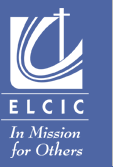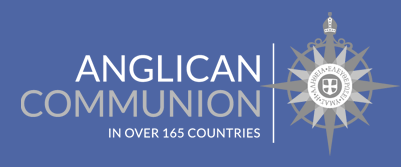Subject: Seeking A Common Word
Moved By: The Rt. Rev. Jane Alexander
Seconded By: The Ven. Alan Perry
Be it resolved that this General Synod:
1) Express its gratitude for, and accept the gift of, A Common Word Between Us and You, offered by Muslim leaders via the Royal Aal al-Bayt Institute for Islamic Thought, Jordan;
2) Join other signatories to A Common Word Between Us and You via the signature of our Primate; and
3) Under the direction of the Faith, Worship and Ministry Committee, and in partnership with the Evangelical Lutheran Church in Canada, jointly support a program of ecumenical Christian-Muslim engagement in receptive communities across Canada, based on the model of the A Common Word initiative in its various local expressions.
Source: Faith, Worship, and Ministry Coordinating Committee
Submitted By: Faith, Worship, and Ministry Coordinating Committee
Does this motion contain within it any financial implications? Yes No
If yes, has the General Synod Expenditures Committee considered the implications? Yes No
EXPLANATORY NOTE/BACKGROUND
Why Muslims and Why Now?
The global population of Christians and Muslims accounts for over half of the population of the world. In many places the relationship between these two religious communities is characterized by tensions and sometimes violence. There can be little doubt that the 21st century will be shaped profoundly by the way that Christians and Muslims engage with one another around the world and here in Canada. Canadian Muslims account for about 4% of the population. This number has continued to grow steadily and now Islam is already the second largest organized religious community in the country. While 60% of Canadian Muslims are centred in Ontario, settlement in other regions is increasing.
Muslims are regularly the targets of anti-Islamic sentiment, hate speech, and acts of violence, increasing in recent years. A stark example is the shooting at the mosque in Quebec City which prompted actions of solidarity by the bishop of Quebec and others.
Due to the recent involvement of Christian churches, in refugee sponsorship efforts with families from the Middle East and Africa, new connections and relationships between Christians and Muslims have become more common in many parts of the country. This presents our members and our churches with both an opportunity and a responsibility to get to know these neighbours and to seek peaceable relations with them. Understanding religious connects and traditions is always important.
Why A Common Word?
In 2007/8, at the initiative of 138 Muslim scholars, clerics, and leaders, a letter entitled “A Common Word Between Us and You” was written. Since its initial drafting, the list of Muslim signatories has expanded to over 400 names from different parts of the world and from various denominational branches of the Islamic community. The letter extends an invitation from Muslims to Christians to come together in search of peace and understanding based upon the shared foundational scriptural principles of “love of God and love of neighbour.” It proposes that these two convictions might serve as a basis for a new kind of relationship between Muslims and Christians than the one that has characterized so much of our history to this point. To quote: “Whilst Islam and Christianity are obviously different religions – and whilst there is no minimising some of their formal differences – it is clear that the Two Greatest Commandments are an area of common ground and a link between the Qur’an, the Torah, and the New Testament. […] So let this common ground be the basis of all future interfaith dialogue between us.”
A Common Word is an especially significant foundational document in the context of Muslim-Christian dialogue for many reasons, of which three are particularly notable:
- The reception it has received by a wide range of churches. The letter has now received nearly 300 endorsements and upwards of 70 formal responses by Christian leaders, churches, and organizations, including the then-Archbishop of Canterbury Rowan Williams, and former Lutheran World Federation President Bishop Mark Hanson, the Vatican, the World Reformed Alliance, the World Evangelical Alliance, the Anglican Church in Wales, the Mennonite Church in the USA, the Canadian Conference of Catholic Bishops and the Presbyterian Church in Canada. many individual Canadian Christians from numerous traditions. A Common Word has fostered an unprecedented level of interest and ecumenically approval.
- It intentionally and explicitly avoids a relativist approach to interfaith engagement. The relativist view of religious pluralism suggests that all sides involved in dialogue should minimize distinctive truth claims in the name of getting along. This is not an authentically Anglican view of inter-religious dialogue. As our church has said in the 1988 document affirmed by the General Synod, Guidelines for Interfaith Dialogue, “By engaging in dialogue Christians are not being asked to compromise their faith that God was revealed in the person of Christ. Their understanding of their own faith should be clear, so that the Christian perspective can be fairly presented to dialogue partners.” An Anglican view of interfaith dialogue does not mean hiding from expressing faith in Jesus Christ or sharing the Gospel we have received; far from it. A Common Word agrees with that. Nowhere does it ask Christians to be less explicitly Christian in order to agree with Muslims. In fact, it seeks precisely the opposite. It invites both Christians and Muslims to turn more deeply to their scriptures, and to be more authentically their distinct selves, as a means of building genuine understanding and peace.
- Grassroots Initiatives: A Common Word has not remained just text on a page but has spawned a variety of grassroots initiatives. This includes publications, educational resources, university programs, and community and church-based groups of various kinds. In Canada, one especially good example of how A Common Word has encouraged Christian-Muslim relations on the ground is the initiative known as A Common Word Alberta, where local Anglicans, Lutherans, Mennonites, Roman Catholics, United Church people, and others, from in and around both Edmonton and Calgary, along with partners in the Sunni, Shia, and Ismaili communities, over 500 participants have been gathering annually for 6 years to build connections and understanding. In recent years this has drawn over 500 participants, building on the relational and receptive dimensions of interfaith learning as well as theological dialogue – a particularly wholistic and effective forum for building Christian and Muslim understanding.
Why Do This as a Full Communion Partnership?
Together in full communion, the Anglican Church of Canada and the Evangelical Lutheran Church in Canada are uniquely able to do mission and ministry together. As that communion deepens and matures, we continue to be drawn further in this direction. One area where we feel it may be possible for us to take some new steps in this regard is in advancing Christian engagement in interfaith relations, and particularly with Islam.
Anglicans and Lutherans already participate together in various forms of interfaith dialogue at several levels. Most often this occurs through efforts organized under the umbrella of the Canadian Council of Churches (CCC) and in the Canadian Interfaith Conversation. The CCC encourages engagement with Islam especially through the National Muslim Christian Liaison Committee, which is a very important forum for Christian-Muslim relations drawing participation from mainly in southwestern Ontario. However, as contact with Islam increases in the East, in the West, and even in the North, there is an opportunity to develop more of these sorts of initiatives in other parts of the country.
We believe the model provided by the A Common Word initiative, and the local expressions of it such as the one that currently thrives in Alberta, and others, could be effectively replicated in other parts of Canada to encourage new configurations of Muslim-Christian engagement, or to support and enhance existing endeavors with additional resources. Anglicans and Lutherans are uniquely well positioned to show some leadership in this regard, working out of our full communion strength for the enhancement of our other ecumenical and interfaith commitments.
Conclusion
Anniversaries of things are very important. We are just coming off the tail end of the 10-year anniversary of the public reception of the A Common Word outreach to the churches. Neither the Anglican Church of Canada nor the Evangelical Lutheran Church in Canada responded to the invitation when it was first made. Perhaps the needs of our time and place are calling us to do so now.
PROCEDURE FOR ADOPTION (G)
In the normal course, an ordinary motion must be passed by a majority of the members of General Synod present and voting together. Six members of General Synod may, prior to the question being put, require a vote by Orders, with a majority of each Order being necessary to pass.
If a question passes on a Vote by Orders, any six members (two from each of three different dioceses) may immediately before the next item of business require a vote to be taken by dioceses. A motion passes if a majority (or a tie) of dioceses vote in favour.
Source: Sections 4 and 5 of the Declaration of Principles and sections 18, 19 and 20 of the Rules of Order and Procedure.


